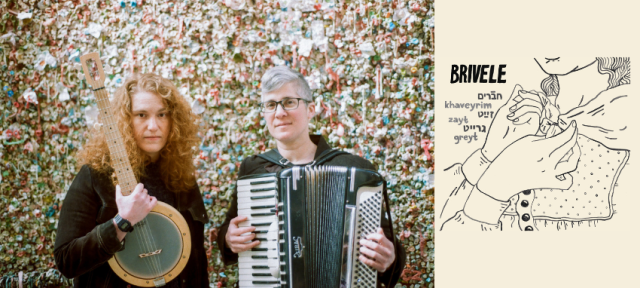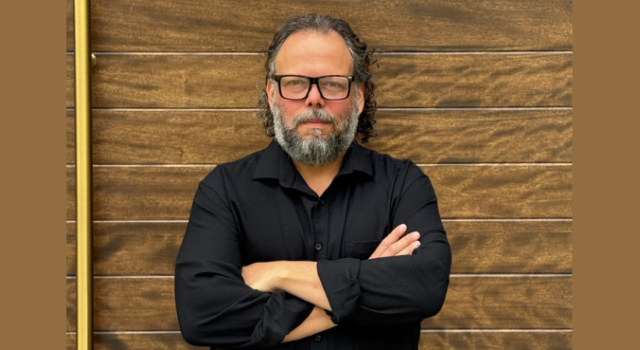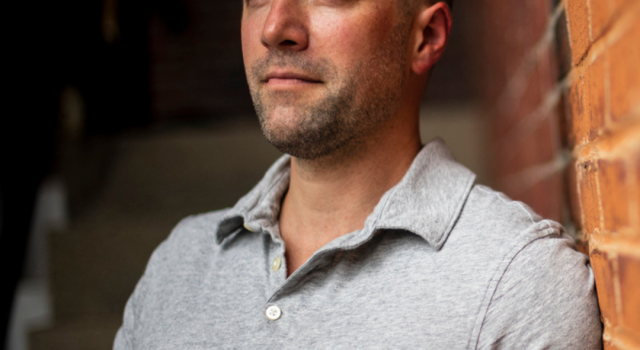Stefanie Brendler 00F on Music, History, and Resistance

Stefanie Brendler 00F, of the band Brivele, talks community planning, klezmer, and fighting fascism through Yiddish folk-punk.
Brivele, a Seattle-based duo known for their genre-defying fusion of Yiddish song, labor ballads, and folk-punk, released their third full-length album this spring. Titled Khaveyrim Zayt Greyt — Yiddish for “Friends, Get Ready” — the album channels voices of resistance from the past and the present, reimagining old melodies and censored texts with haunting vocal harmony and revolutionary spirit.
We spoke with Stefanie Brendler, half of the duo, about how her Hampshire experience shaped her path from community planning to klezmer, and how archival research, music, and activism come together in her work.
What originally attracted you to Hampshire?
When I was considering my options for after high school, I didn’t have a lot of guidance. My dad dropped out of college to work for the family business and my mom went to school to be a teacher, which was essentially one of three subjects women were allowed to study at the time. Because my parents felt so limited by their options, they wanted me not to feel so restricted. I was attracted to the freedom to create my own course of study at Hampshire. That, and it’s part of the Five College Consortium, which increased the amount and types of classes I could take.
What did you study? What was your Div III?
In high school, I was a musician and a tech theater kid. When considering what I might study in college, I was actively discouraged from the arts, believing I wouldn’t be able to get a job after school. Having skills to survive capitalism was important to my family, and they taught me to believe that there’s no work for artists. Since I was also involved in environmental activism, I crafted my academic studies around that interest.
At Hampshire, I studied sustainable community planning, and my Div III was on community involvement in local planning processes, a multidisciplinary study in social and natural sciences and design. I also studied Russian at Smith College, and despite my current interest and work in Yiddish, I never once set foot in the Yiddish Book Center as a student. I studied Russian because I enjoyed studying languages, I had a friend in high school who taught me to read Cyrillic, and I was told by my family that “we came from Russia, we fled the Tsar,” and Yiddish is a dead language.
How did your Hampshire experience impact your work?
My Hampshire experience taught me how to research and how to learn, which enabled me to subsequently figure out how to change careers. After finishing school, I decided I wanted music to be a greater part of my life than I had allowed it to be. I’m a multi-instrumentalist and have been a part of different music communities in Seattle since 2004, with a heavy focus on playing music from different world folk traditions. I played in Balkan brass bands for a number of years, and when I eventually moved on from them, I decided to take a deep dive into Yiddish and klezmer in order to play my people’s music: Eastern European Ashkenazi Jewish music. In addition to playing with Brivele, I play in a klezmer brass band, Shpilkis.
Hampshire instilled in me the value of multidisciplinary work, and for me right now, this includes taking a holistic approach to Yiddish culture, incorporating the study of klezmer instrumental music traditions, Yiddish language and translation, Yiddish lyrical traditions, history, literature, visual arts, food, and more. This is especially evident in Brivele’s work: Our music is based on deeply researched archival material, both musically and lyrically. The liner notes for our albums are essentially works-cited lists.
What inspired/s the music (other than, you know, the obvious)?
At Hampshire, I learned that “to know is not enough.” Brivele began during the winter of 2017 during the first Trump administration as a response to the changing political climate and a new rise of fascism. There is a tradition of storytelling in Yiddish song about fighting systems of injustice, bosses, landlords, and fascists, as well as utopian visioning of the world we strive for. Brivele dives into those archives to bring these stories to light.
More recently, since October 7, 2023, and the weaponization of antisemitism as a tool for racial, xenophobic, and Islamophobic profiling for abductions and incarcerations, we find it more important than ever to use our voices to fight for equity and justice, to use the critical thinking skills I learned at Hampshire to know that antisemitism and anti-Zionism are not the same thing, and that we can defy violent nationalism while still valuing our cultural heritage. To know is not enough: We must also act.



